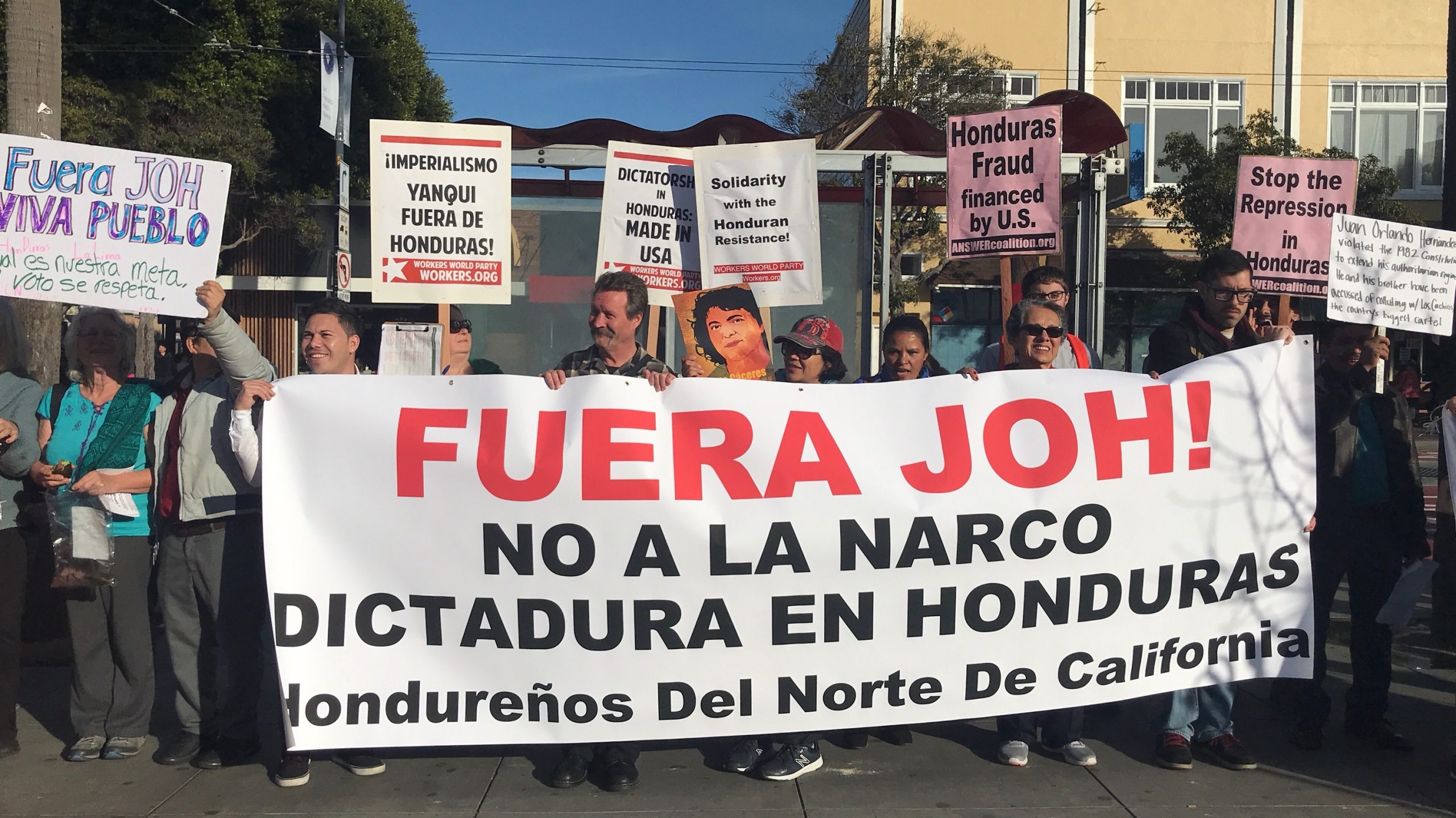, EXECUTIVE DIRECTOR, CENTER FOR DEMOCRACY STUDIES (CESPAD) IN HONDURAS
Originally published in Newsweek: https://www.newsweek.com/plea-democracy-honduras-opinion-1651876
November 23, 2021
Every day more than 200 Honduran families cross the southern border of the United States seeking asylum—more than any other nationality. Fleeing oppression, violence and climate-related disasters, even young, university-educated Hondurans do not see a future for themselves in their home country.
We live under the guise of democracy, but there is no separation of powers. Widespread corruption permeates the governing elite, as evidenced most recently by the sentencing of President Juan Orlando Hernández’s brother earlier this year. President Hernández himself has been identified in U.S. courts as a co-conspirator in a drug conspiracy case. Democratic institutions intended to investigate public officials linked to organized crime have been largely disabled.
Scores of human rights violations have occurred, including assassinations of political candidates, journalists, lawyers and judges. Honduras has been called “the deadliest place to be an environmentalist,” exemplified by the high-profile murder of Goldman Environmental Prize winner, Berta Cáceres in 2015 for organizing Indigenous communities to fight against displacement.
The impacts of the pandemic and two back-to-back hurricanes in 2020 have devastated an already dire economic situation. According to the World Bank, almost half of Honduras’ population lives on less than $5.50 per day, making Honduras the second poorest country in Latin America and the Caribbean.
All of this can change soon, however, in the country’s upcoming election. With a new president and many other officials on the ballot, Nov. 28 is our greatest hope to escape the current authoritarian regime and restore democracy.
Yet, there is concern about recent fear tactics intended to intimidate voters. More than 30 people were murdered this year alone for political reasons, including four political leaders.
Thousands of Hondurans and dozens of international observers are gearing up to monitor this election. But we can’t do it alone. We need the U.S. Department of State to join us in making sure that human rights are not violated, and in speaking out forcefully against any acts of censorship or repression.
Recently, 29 members of Congress sent a letter to U.S. Secretary of State Antony Blinken urging “robust State Department monitoring and public criticism of authoritarian practices to maximize the chance of an inclusive and transparent electoral process” in Honduras. Clearly, the outcome of this election is in the interest of the United States.
After the 2017 election in Honduras, the U.S. State Department looked away when Hernández was declared the winner, despite fraud and a call for a re-do by the Organization of American States. For months, the Honduran military and police shot at protesters, killing dozens of people and detaining more than 1,300 to stop dissent. We urge the U.S. government not to make this mistake again.
Our country has been in crisis ever since the 2009 coup, which overthrew the democratically-elected government of Manuel Zelaya Rosales. The co-mingling of oligarchs and drug traffickers with state actors has deepened. Human security has deteriorated, and critical problems like drought, gang violence and extreme poverty have gone unaddressed. The United Nations Office of the High Commissioner for Human Rights has reported that journalists face targeted killings, arbitrary detentions, the destruction of equipment and other obstacles that have impeded their ability to operate independently.
Despite the difficult situation in Honduras, I am optimistic. For the first time there is broad opposition to the current regime. We even have the support of some in the private sector who are fed up and want to create more opportunities for economic growth. This unprecedented level of organizing and unity in Honduras echoes the momentum that eventually led to the downfall of the brutal Pinochet dictatorship in Chile.
Honduras is a country that is largely marginalized and forgotten. This upcoming election is a chance to change that, and start a new chapter. It could solve many of the essential problems we face. A free, fair and peaceful electoral process represents an important opportunity for Honduran citizens to reestablish the rule of law.
It is important that the United States serve as a neutral, credible and impartial observer, while supporting an outcome in Honduras that is genuinely democratic. We need the international community to support a transparent, authentic, clear and peaceful election and an end to 12 years of crisis.
Hondurans want to stay in the country that they love. Right now, migration is not a choice for many, but a means of survival. This election could improve our quality of life, allow everyone to feel safer, have our voices be heard and stop the mass exodus.
We are ready to usher in a new era.
Gustavo Irías is executive director of the Center for Democracy Studies (CESPAD) in Honduras.






